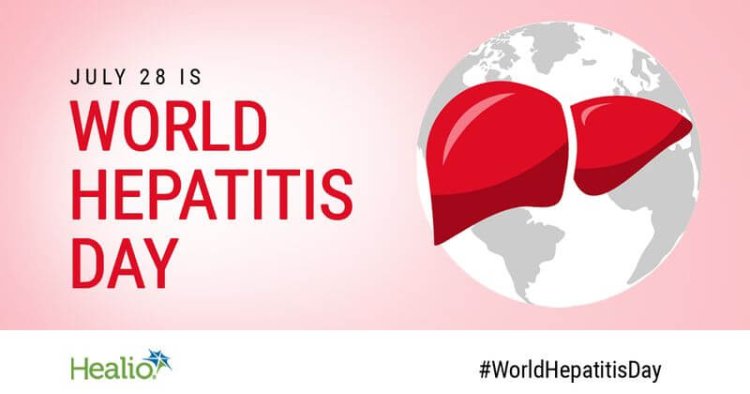Fast-track Hepatitis Day: Speed Up Testing and Treatment
Dr. Poonam Khetrapal Singh, WHO Regional Director for South-East Asia, is urging leaders, healthcare providers, and policymakers around the world to speed up hepatitis testing and treatment on World Hepatitis Day.

Dr. Poonam Khetrapal Singh, WHO Regional Director for South-East Asia, is urging leaders, healthcare providers, and policymakers around the world to speed up hepatitis testing and treatment on World Hepatitis Day. The theme for this year's event is "One life, one liver," emphasizing the importance of taking care of our health.
Globally, there are about 354 million people living with chronic hepatitis B and C, and each year, approximately 1.1 million people die from complications related to hepatitis, such as liver cirrhosis and cancer. Many of those affected are unaware of their condition, which is why hepatitis is often called the "silent killer." Thankfully, there are vaccines for hepatitis B and effective antiviral drugs for managing chronic hepatitis B and curing most cases of hepatitis C.
However, to achieve the goal of eliminating hepatitis as a public health threat by 2030, access to prompt and accurate testing is crucial. In the South-East Asia Region, around 20% of global hepatitis-related deaths occur, with hepatitis B and C being responsible for 81% of these deaths. About 60 million people live with chronic hepatitis B, and approximately 10.5 million people live with chronic hepatitis C in the region. Every year, there are nearly half a million new hepatitis B and C infections reported in the region, about one infection every minute.
While some progress has been made, there is still a need to improve access to testing and treatment for hepatitis. Only a small percentage of eligible people know their status and have access to treatment. To accelerate progress, WHO suggests several actions:
-
Policy makers should include hepatitis testing and treatment in essential primary health care services, ensuring accessibility within the community and as part of universal health coverage.
-
Health and community leaders should focus on engaging vulnerable and high-risk communities and involve people from all walks of life, following the successful approach used for HIV initiatives.
-
Policy makers and healthcare providers, including the private sector, should integrate services for hepatitis, HIV, and sexually transmitted infections (STIs), aiming for better efficiency and reduced gaps.
-
Countries should allocate funding appropriately to tackle the three diseases effectively based on their current burdens.
The targets set for the future are ambitious but achievable. By 2030, the goal is to achieve a 90% reduction in new chronic hepatitis infections and a 65% reduction in hepatitis-related deaths. The ultimate aim is to eliminate hepatitis as a public health threat. On World Hepatitis Day, WHO expresses its commitment to support all countries in the region to make rapid, strategic, and equitable progress for healthier livers and healthier lives.
What's Your Reaction?















